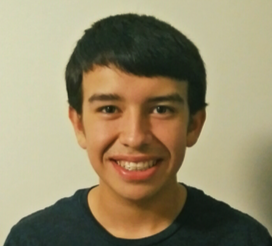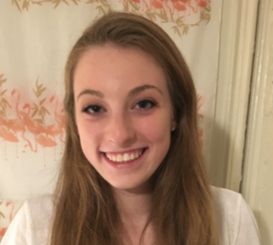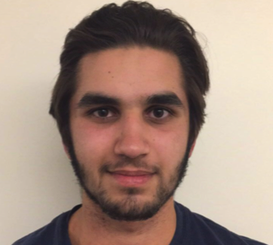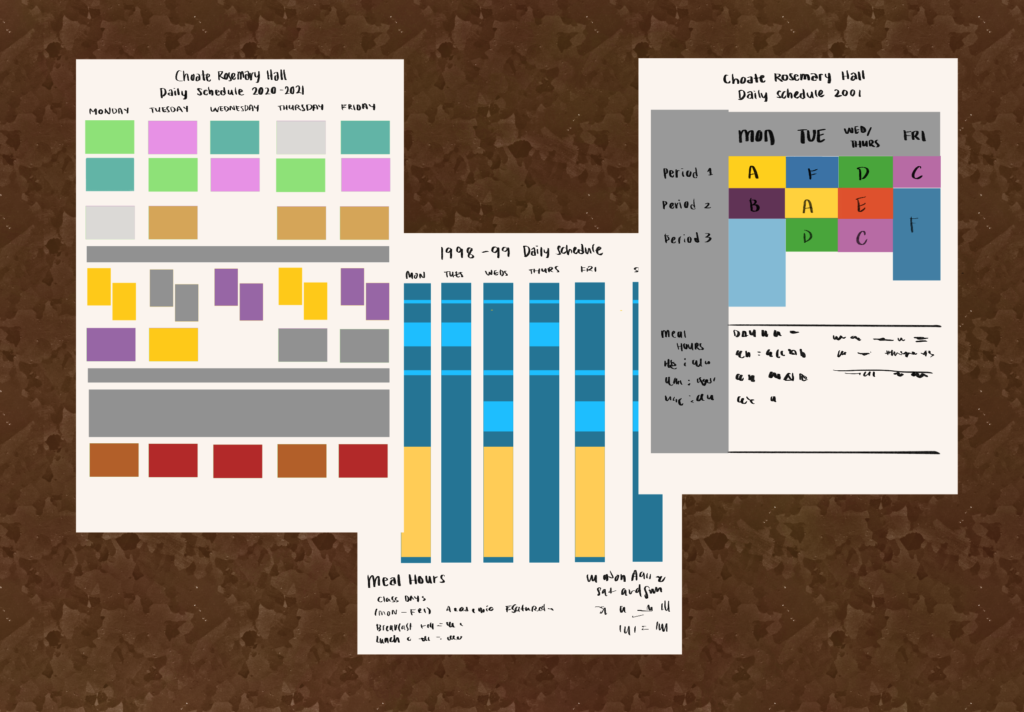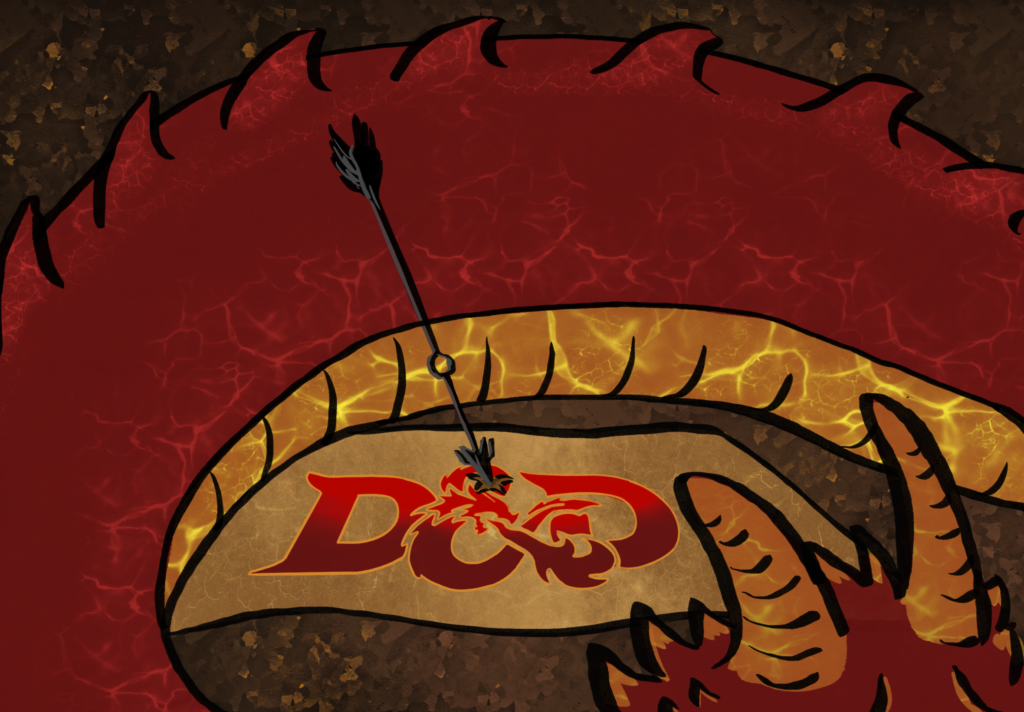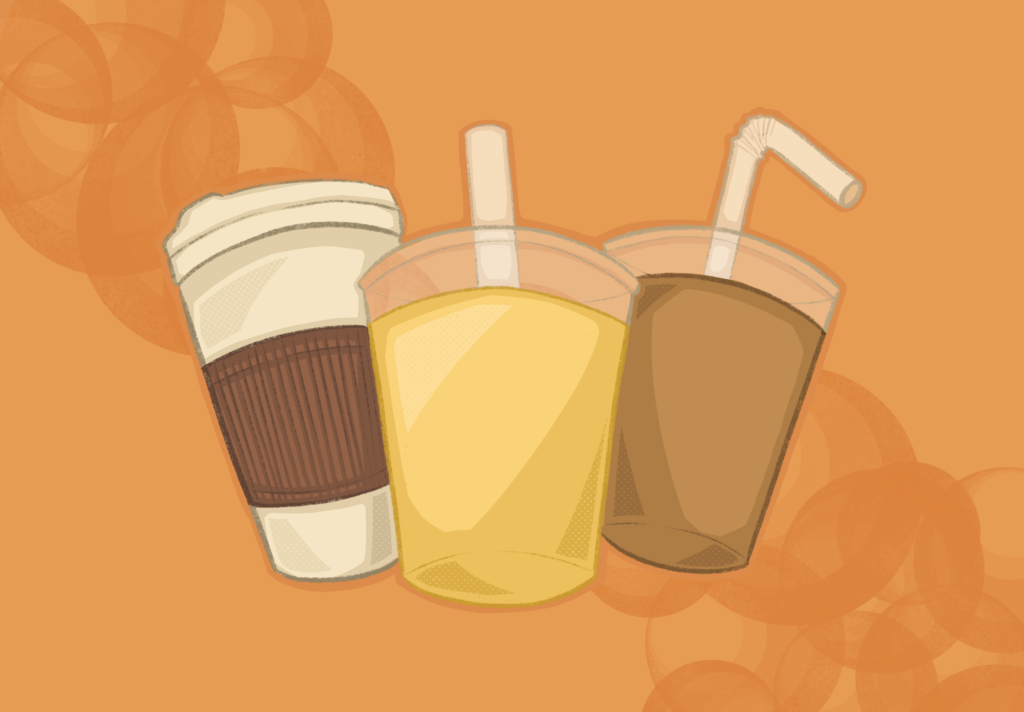Sam Wendel is a four-year junior from Astoria, N.Y.
My birth mother died when I was three months old, and my dad remarried when I was six. Last year, he divorced my stepmom. And, this year, he married again.
My family has moved a lot, and, as we pack up, we discover stuff. We found a pack of my birth mother’s old Tarot cards and so learned that she was into Tarot reading. I found one of her annotated versions of Beowoulf, and my dad told me her major in college was Old English, which I never knew.
In a way, knowing a little bit about what she was like helps me understand myself. I went on Ancestry.com last year and saw a bit of her past. Both her parents died a few years ago, before I really had the opportunity to ask about her, so I look into whatever I can find.
My stepmom legally adopted me. When I talk about my birth mother, I say “birth mother,” and when I talk about my stepmom, I say “mom.”
My mom definitely cares about me. Sometimes she can be slightly overbearing, but I think that’s any mom. I’m not the easiest kid to have, and she’s on board with that and always supporting me. I think she’s signed up for the role of Mom very well.
Growing up, she and my dad fought a lot. During middle school, I would literally walk around New York City for hours after school just so I wouldn’t have to go home and deal with it. My dad wasn’t always there, but whenever he came back, he was a ticking time bomb. I fought with him, too. Once, he pinned me against the wall and screamed at me for a while.
With the divorce, at first, I was mad at him. I felt as though he’d abandoned my stepmom. Now, while I haven’t forgiven him for all the stuff he’s done, I’ve gotten over it, because there’s no point in being angry. He supports me in everything I do, and I support him in everything he does whether I agree with it or not, because that’s how I think it should be.
His third wedding was one of the most fun days of my life. And when he’s with his wife, he’s happier than I’ve seen him in more than a decade. I’m never going to consider her my mom, but she’s a friend to me. If my dad’s happy, then I’m happy.
I learned that you can’t really choose your family, so you’d better just get along with them. I wouldn’t have chosen to have three moms, but life happens.
My dad and his sister fought for years, but when their sister (my other aunt) died, they finally started talking again. If my brother and I fight, we make up the next day.
It seems that, one day, family is the only thing you’ll have left, so you might as well be nice about it.
Alix Mackillop is a three-year junior from Silver Spring, Md.
When I was really young, I thought it was normal to have two moms. It wasn’t until I was six or seven — around the age when you start playing on teams and going to school — that I realized that very few people had two moms. I was a little confused, but I still thought it was cool.
My parents take a different role; one is more authoritative, the other one is more passive. I’ve gotten to learn a lot of different values.
They both wanted me to get into sports. I played on a boys’ hockey team when I was eight or nine. My teammates would use the word “gay” a lot. I had heard that all my life, because my parents are gay, but they used “gay” in vulgar ways.
I saw a lot of hatred toward my family. Some of my friends’ parents wouldn’t let me hang out with their kids. One guy was like, “You should kill yourself before you get infected by them.” In eighth grade, a girl on my hockey team told me, “Because your parents are gay, you’re probably gay, too. That’s why you stare at everybody when they take their shirts off.”
I remember my parents saying, “It doesn’t matter. Those kids are immature, and they don’t understand. You can’t let it get under your skin.” They explained that everything would change soon. Yet, after the incident with the girl on my hockey team, I was defeated. I had no confidence in talking about my family.
As I grew older, I started meeting more people who had a single parent, or didn’t have parents at all. I was at the airport coming home from a hockey tournament, and I met this boy. We were talking: I said, “I have two moms,” and he said, “Me, too!” That was the best reaction I’ve ever gotten.
I realized my family isn’t that nontraditional because there are so many nontraditional families.
Ever since the Supreme Court decision on gay marriage, I’ve seen so many people stepping up and becoming who they want to be. One of my friends, who claimed he was straight because he was afraid of getting bullied, asked out his boyfriend, who is now his fiancé.
As a result of how I grew up, I am a really accepting individual. I don’t care who you date. I think it’s awesome, as long as you love the person.
Sabastian Chacon ’19 is a two-year sophomore from Lawndale, Calif.
I live with my grandmother, two uncles, and younger brother.
Until age four, I lived with my mom and dad, but my dad wasn’t the nicest guy, as some dads can be, and my mom had to leave. She went to go live with her mother and father, my grandparents.
I remember going out to play baseball with my grandfather. It was a time when I felt that being a kid was really fun. He was passionate about baseball, and he got me hooked on it. He was just someone that, as a whole, I had great memories with. One year, my grandfather got sick, and he passed away at age 54.
Later, there was a fire in our house, and we had to move. When we got to the new home, complications occurred between my mother and grandmother. My mother was young when she had me and my brother, and she didn’t always make the best decisions; my grandmother, being much older, did. We decided to stay with her.
My grandmother is just a strong lady. She really is. She always laughs even when times are tough, which is why I can, too. Whenever she falls, she gets back up, and that is something that a kid just picks up.
Financially, it was tough for my grandmother to support us (as well as one of my uncles who didn’t work because of a mental condition). So her oldest son decided to move in and help out.
When he came, he definitely took the position of a father figure. He understood what I was going through because his dad left his mom when he was younger. And so, with my brother and me, he definitely said, “I don’t want this to happen again with these boys.” I felt very lucky because some children don’t ever get that.
When I left for boarding school, my family was still in a rough time with my mother and custody stuff, which stressed me out. Growing up, I definitely felt that I had to protect my brother from what people were saying about our family, but one thing that I found optimistic about leaving was that he got to learn how to be more independent.
I never questioned why I couldn’t have a mom and dad because I always had a grandmother and grandfather and uncles there for me. And sometimes I got along with my mother.
I’ll always love them, because they have always loved me. They’ll always be there for me. To my family, I say two things: thank you, and I love you.
Calvin Carmichael ’18 is a three-year junior from Washington D.C.
My parents separated shortly before I was born. I live with my mom most of the time, although I also see my dad a lot, too. My mom and dad have also both moved on from each other. I have a stepdad — my mom’s fiancé — and my dad has a girlfriend. They all try to co-parent together.
I am so close with my stepdad. He and my mom met when I was four, so I’ve known him for the past 12 years of my life. He’s basically another parent to me; he acts just as my dad or my mom would. I have so much trust in him.
I remember one time when I was seven or eight, my dad was dropping me off at my mom’s house, and my stepdad was in the window. To my stepdad, I called “Hey, dad,” and my actual dad yelled at me.
I think my dad is okay with it now. he understands that I love him just as much, and they all understand they are loved equally.
A lot of my friends are like, “Oh, you can literally get whatever you want. If your mom doesn’t give it to you, you just ask your dad.” That’s not how it works. I wish people knew understand that better.
In fact, it’s hard when my mom and dad have conflicts over what’s best for me. For example, this fall, for Long Weekend, my mom wanted me to fly home on Saturday, but my dad was coming up to Choate, leaving on Sunday. Without telling my dad, my mom booked me a ticket to go home on Saturday.
It’s rough because my mom is the more assertive type, and my dad will talk to me about it. I wish they were closer and could follow each other’s wishes more. But, honestly, I want to thank my dad for always being there, and my mom for always breaking her back for me.
My parents taught me to be flexible. A lot of things will come up in life, and you just have to roll with the punches. I’ve seen that in their experiences.
Liv McCulloch ’17 is a three-year junior from Sunderland, Mass.
I have two moms, but what’s even cooler, I actually have ten moms because all of my moms’ friends live in our town, and none of them have kids. I was pretty much raised by all of them.
Julie, who goes by Mommy, is my biological mom. She has always been really, really close to me. She’s been here for me if I just needed a friend, which is awesome, since as an only child family life can get kind of lonely.
Deb, who goes by Mama, is my other mom. She’s probably the most loving person I have ever met, and she also pushes me really hard — in the best way.
When I was five, Massachusetts legalized gay marriage, and I got to go to my moms’ wedding. At the wedding, all of their friends and I filmed a version of The Wizard of Oz. I played Dorothy. That year, my moms went to eight weddings because all of their friends also got married.
Just before I came to Choate, they all got matching shirts that said “The Village,” because that’s what they call themselves. They threw me a surprise going-away party and all sang “Ain’t No Mountain High Enough,” meaning that they’d come and help me if I ever needed it.
When I come home from school, I don’t go and see my best friends — I go and see my moms. They really are my family, and all of them care about me so much, and I care about them so much.
One of them is a librarian, and she’s really, really intelligent. I can go to her with any sort of topic I want to talk about, and she’ll talk to me. Another one is incredibly successful in the sense that she’s worked hard all her life and is now on the board of a prestigious insurance company.
I often think about how different my life would be if I had a dad. But because I’m so comfortable with the situation that I’m in, I don’t feel like I’m missing out on anything. Yeah, I’ve always wanted to know what my biological father is like, because I have absolutely no idea (all I know is that he’s a six-foot tall athlete of Scottish or German ancestry), but I think what I have is perfect.
My moms have shown me that I can be whoever I want to be, and no matter who that is, I’ll get their support. They’re all just so loving.
Tristan Jamidar ’18 is a three-year junior from Guilford, Conn.
I have a dog named Bella, an 11-year-old black lab. My brother Chris is 17 and in his senior year of high school. My dad is a doctor in New Haven. My mom mostly took care of our home, but she also worked as a librarian a few years ago. In April 2013, she died of pancreatic cancer.
I have a pretty weird family. My dad is Indian and Kenyan, and my mom is Eastern European. That’s kind of a cool mix of cultures. But during family vacations, there was always conflict. When you picture a normal family, that wasn’t us.
My mom fought stage three pancreatic cancer for two years. I didn’t know she had cancer until about six months before her death. I was just told that, “There’s something growing inside her that’s not good.”
My main reaction was, ‘Oh, she’s sick, but my dad’s a doctor, and she’ll get better.’ I thought the illness was equivalent to a cold.
For the last six months of her life, she had to be moved into hospice care in our house. It was very difficult for her to walk or move around on her own, so how she carried herself was different. But she had the same spirit, and her happy disposition stayed.
The night she died, it was like, “Oh, my mom’s dead.” It was tough, but in my mind, I didn’t feel as bad as I felt I should have. Even at the funeral, I had to be my brother’s shoulder to cry on. I had to be this emotional rock for my other family members, who were kind of losing it.
But over time, you have these moments, where you go, “Hey, Mo—” And then Mom’s not there. And you just have to move on.
I loved her a lot, and she loved me. I could talk to her about anything. She was someone you could go to and be soft and vulnerable with. I was a sensitive kid growing up, so I was kind of really attached, but you can probably say that about all kids with their moms.
Now, with one less member in the family, our ties have gotten stronger. My brother and I fight a lot less. With my dad, I’ve opened up a lot more.
My mom’s death has definitely left a hole in my heart, but it’s just that, a hole. It isn’t a chasm. I don’t know if that’s just a mental block I made for myself, but, well, yeah.
Additional stories will be uploaded after long weekend. Stay tuned!

